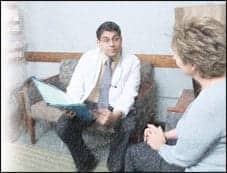In January 2010, 3-year-old Mathilda Crisp received the H1N1 vaccine in her home country of England. Within weeks, she began to display a bizarre plethora of neurological symptoms that left doctors baffled and her parents distraught. Mathilda began to “hallucinate” at night and suffer with unrelenting sleep attacks during the day.
After multiple failed hospital admissions, a team of neurologists referred Mathilda to the psychiatric unit. Fighting to get Mathilda an accurate diagnosis, Claire showed a young doctor from India video footage of Mathilda collapsing when the child experienced joy. That physician, Dr Siddarth Shah, was the first to recognize the disorder that caused Mathilda to devolve from a vibrant, articulate child to into an unhealthy, confused one: narcolepsy.
Researchers are trying to find a mechanism that links a version of the 2009 H1N1 vaccine used in some European countries to narcolepsy onset, and many of those who developed narcolepsy in close time proximity after receiving the vaccine are filing for compensation. One child received a £120,000 in damages from the Vaccine Damage Payments Scheme, reports the BBC.
In the self-published narrative Waking Mathilda: A Memoir of Childhood Narcolepsy, Claire Crisp tells the story of her family’s quest to provide life-changing treatment for their youngest child—a journey that ultimately led them to the Stanford Center for narcolepsy research in California. Leaving their lives, home and families back in England, the Crisp family began a new journey: one that explored suffering, sacrifice, loss, and love as immigrants on the West Coast of the United States.
Claire is also the recipient of the 2015 Patient Awareness Award by the Narcolepsy Network in recognition of her work as an advocate for children with narcolepsy. Claire now lives in Los Angeles, blogs at claireccrisp.com, and is a regular conference speaker in the United States.






